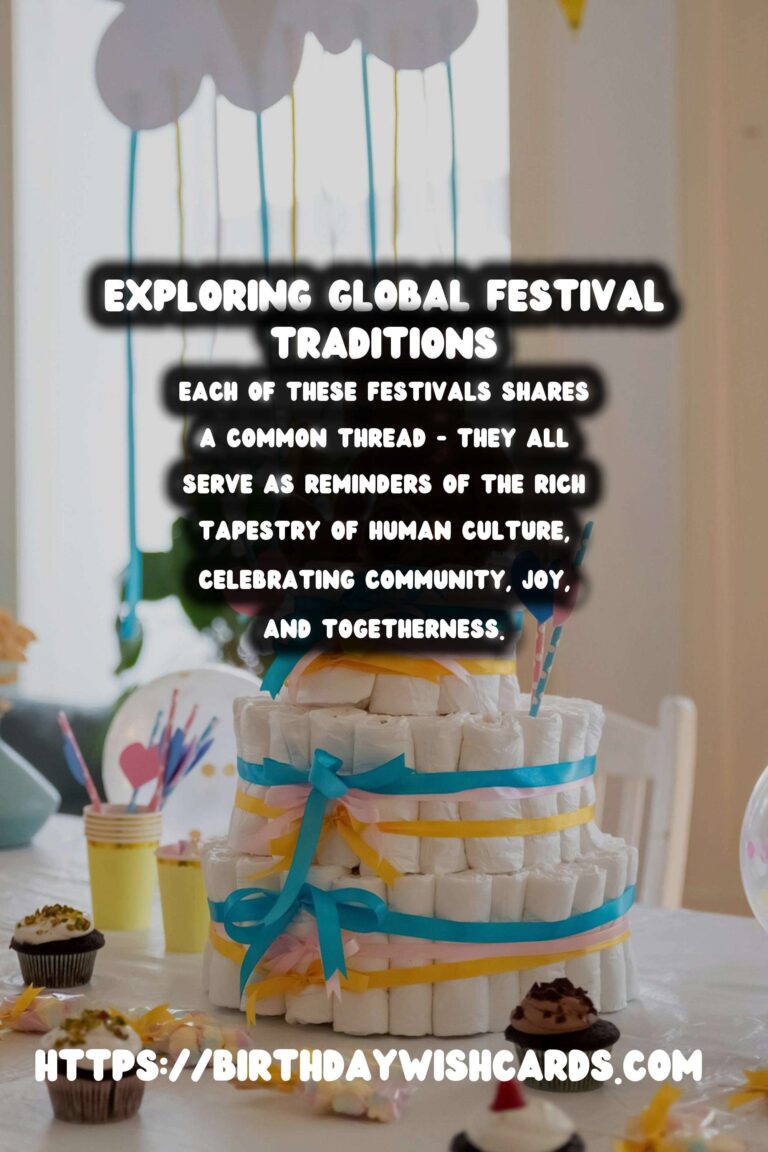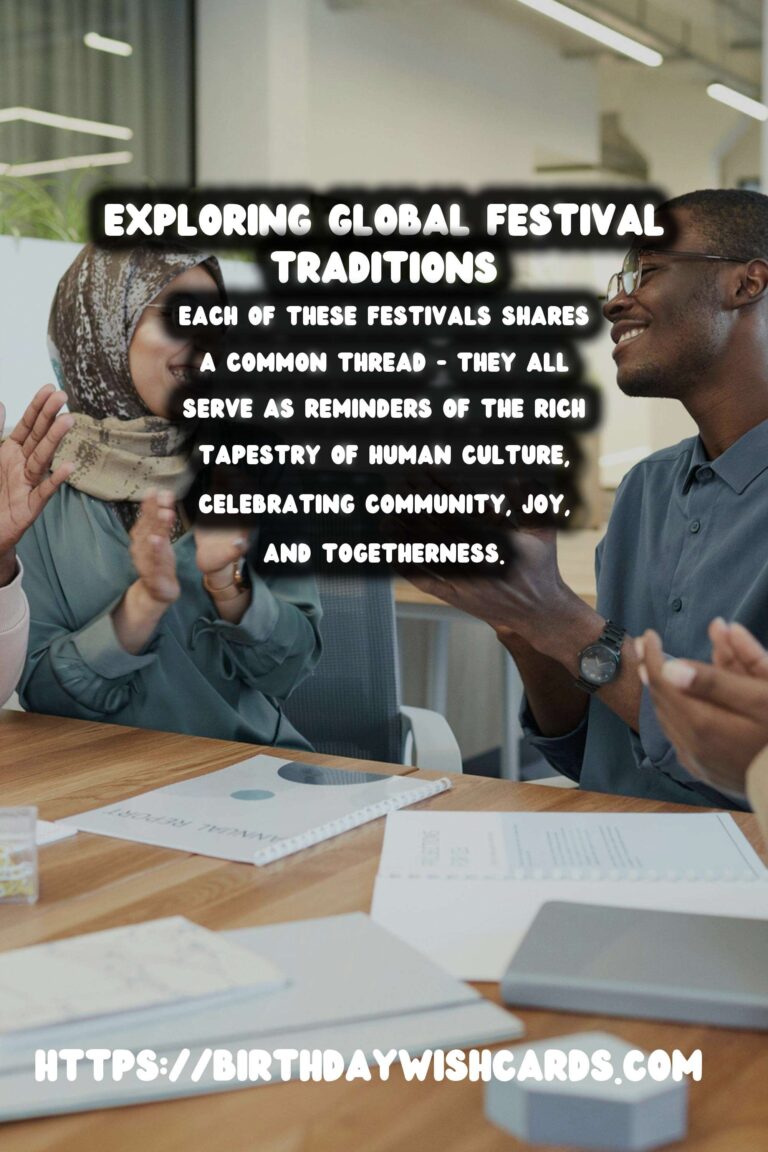
Festivals are a vital part of human culture, offering a unique glimpse into the traditions and beliefs of different communities around the globe. They are not just dates on a calendar but a celebration of heritage, joy, and unity. In this article, we will explore 10 meaningful festival traditions from various parts of the world that uniquely contribute to the festival spirit.
1. Diwali – The Festival of Lights (India)
Diwali, also known as the Festival of Lights, is one of the most significant festivals in India. It symbolizes the victory of light over darkness and good over evil. During this five-day celebration, people light oil lamps called diyas, decorate their homes with colorful rangoli, and exchange gifts with loved ones. Festivals like Diwali promote togetherness and reinforce cultural values through joyful ceremonies and family gatherings.
2. Hanami – Cherry Blossom Festival (Japan)
Hanami, meaning “flower viewing,” is celebrated in spring when cherry blossom trees bloom across Japan. Families and friends gather in parks for picnics beneath the stunning cherry blossoms, expanding their enjoyment of the bloom with food, music, and camaraderie. This tradition highlights the beauty of nature and the transient nature of life, encouraging people to cherish fleeting moments.
3. Carnival – Rio de Janeiro (Brazil)
The Rio Carnival is a world-famous festival known for its vibrant parades, samba music, and elaborate costumes. This annual celebration brings millions of people together to dance, sing, and enjoy endless festivities. Carnival represents the spirit of Brazilian culture, emphasizing joy, freedom, and community bonding through lively performances and artistic expression.
4. Day of the Dead (Día de los Muertos) – Mexico
The Day of the Dead is a Mexican festival that honors deceased loved ones. Families create altars, called ofrendas, decorated with photos, food, and flowers to welcome spirits back for a day of remembrance. This heartfelt tradition combines indigenous beliefs with Catholicism, reflecting a unique perspective on life, death, and the importance of family heritage.
5. Oktoberfest – Germany
Oktoberfest is the world’s largest beer festival held annually in Munich, Germany. This 16- to 18-day folk festival attracts millions who enjoy traditional German beers, foods, and a lively atmosphere featuring music and funfair rides. Oktoberfest serves as a celebration of Bavarian culture, fostering camaraderie among residents and visitors from around the world.
6. Eid al-Fitr – End of Ramadan (Islamic countries)
Eid al-Fitr is a significant Islamic festival marking the end of Ramadan, a month of fasting. Families come together to share meals, give charity, and engage in communal prayers. The spirit of Eid lies in gratitude, generosity, and community bonds, showcasing beautiful traditions such as wearing new clothes, giving gifts, and providing for those in need.
7. Holi – The Festival of Colors (India)
Holi is a lively and colorful festival celebrated by millions in India and around the world. Known as the Festival of Colors, it marks the arrival of spring and the victory of good over evil. Participants throw colored powders and water at each other, dance, and enjoy festive foods. Holi is a joyous occasion promoting unity, forgiveness, and the celebration of life.
8. Thanksgiving – United States
Thanksgiving is a national holiday celebrated in the United States, centered around gratitude and sharing blessings. Families gather to enjoy a feast, typically featuring turkey, stuffing, and pumpkin pie. This tradition encourages mindfulness, appreciation, and the importance of family, making it a cherished time of togetherness and reflection.
9. Midsummer – Sweden
Midsummer is one of Sweden’s most celebrated festivals, marking the summer solstice. Swedes gather to dance around the maypole, enjoy traditional foods, and celebrate the beauty of nature. This festival embodies the joy of summer and encourages community participation, showcasing Swedish traditions and customs.
10. La Tomatina – Spain
La Tomatina is an unusual and fun festival held annually in Buñol, Spain, where participants engage in a massive tomato fight. This quirky celebration offers a unique way to let loose and enjoy the spirit of camaraderie and humor. La Tomatina demonstrates the unexpected ways people come together to celebrate traditions and enjoy life.
Each of these festivals shares a common thread – they all serve as reminders of the rich tapestry of human culture, celebrating community, joy, and togetherness. Engaging in these traditions not only fosters understanding between cultures but also highlights the common values that unite us all as human beings.
Festivals are a vital part of human culture, offering a unique glimpse into the traditions and beliefs of different communities around the globe. Each of these festivals shares a common thread – they all serve as reminders of the rich tapestry of human culture, celebrating community, joy, and togetherness.
#FestivalTraditions #WorldFestivals

